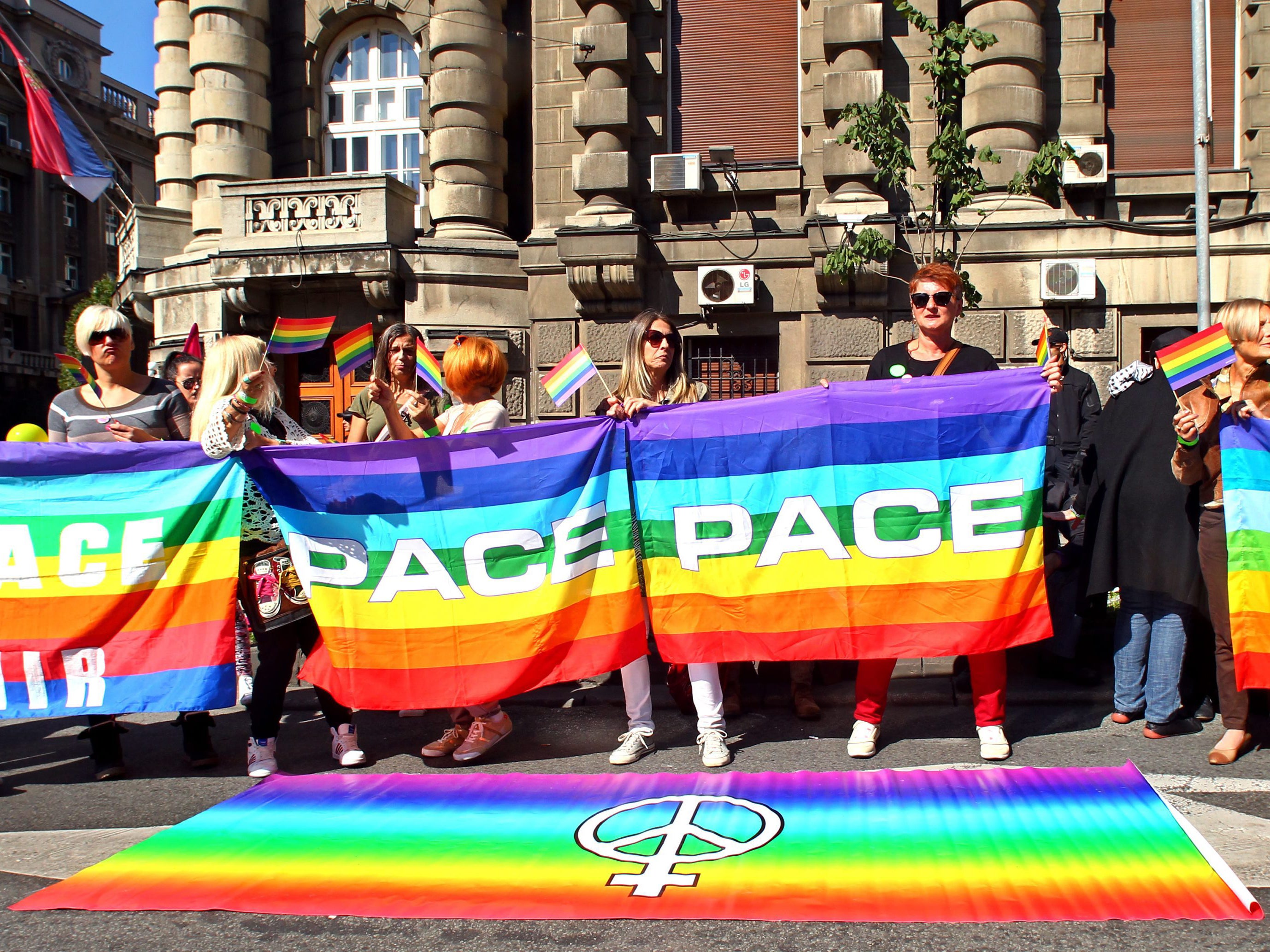Your support helps us to tell the story
From reproductive rights to climate change to Big Tech, The Independent is on the ground when the story is developing. Whether it's investigating the financials of Elon Musk's pro-Trump PAC or producing our latest documentary, 'The A Word', which shines a light on the American women fighting for reproductive rights, we know how important it is to parse out the facts from the messaging.
At such a critical moment in US history, we need reporters on the ground. Your donation allows us to keep sending journalists to speak to both sides of the story.
The Independent is trusted by Americans across the entire political spectrum. And unlike many other quality news outlets, we choose not to lock Americans out of our reporting and analysis with paywalls. We believe quality journalism should be available to everyone, paid for by those who can afford it.
Your support makes all the difference.Belgrade was placed under lockdown last night as Serbia’s first Gay Pride march in four years took place under the watchful eye of tanks and special forces.
The activists were able to advance several hundred metres through the deserted city-centre streets, but only thanks to the protection of thousands of riot police, water cannons and helicopters.
It was a rare sight for Serbia, one of the most conservative countries in Europe, to witness a march akin to those found in the more cosmopolitan cities of London and Berlin. Albeit on a smaller scale and with far more security.
After a march in 2010, pride events were banned for three years because of clashes between police and extreme right-wing groups, which saw more than 100 people injured. This year there appears to have been little violence, despite threats made by ultra-nationalists.
Belgrade’s mayor, Sinisa Mali, who joined the demonstration with foreign diplomats, said it was an opportunity to show that Belgrade is a world capital where “all citizens are equal.”
Darko Pandurevic, 23, from Sarajevo, who came to show solidarity with marchers, added he felt “a little bit scared,” but believed everything would be fine.
Pressure from the EU is thought to be the main reason Serbian officials allowed Sunday’s event to take place after the three year ban. The country is keen to join the organisation and wants to burnish its human rights credentials.
“This is a very positive and strong message,” the head of the EU mission in Serbia, Michael Davenport, told the rally. “It is also a strong message to those using hate language.”
There is some way to go before members of the LGBT community can enjoy full acceptance in Serbia however, as thousands of anti-gay campaigners protested against the march on Saturday and the head of the country’s Orthodox Church denounced the march.
Additional reporting by AP

Join our commenting forum
Join thought-provoking conversations, follow other Independent readers and see their replies
Comments